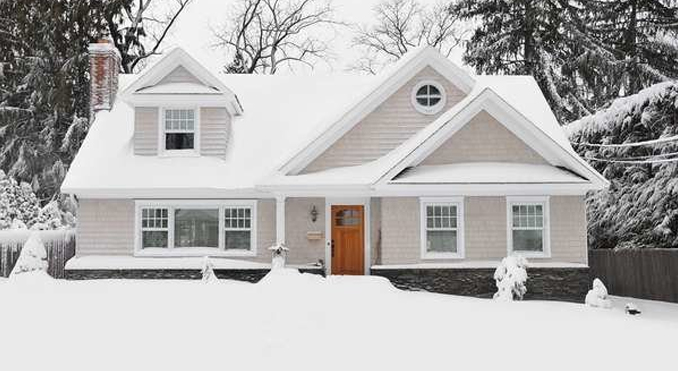
by Evelyn J. Mocbeichel
The first below forty degree temperatures moved into our area last week and a month earlier my husband started to prepare for it. Each autumn season he checks our heating system by turning it on early September to make sure it is working properly before we need it to supply heat. This way if there are any problems he has time to repair it or call the technician to service it. Then he changes the filters and nozzles so they are clean and efficient, before turning off the system until we need it. Speaking of colder weather and freezing temperatures, it is important to make sure your pipes do not freeze, causing expensive water damage.
Never let your house temperature go below 58 degrees when freezing temperatures move in. Some people turn down the heat really low over night or when going away. This is the worst thing to do, unless you have a remote device that allows you to increase it from a distance. When we go away for a few days, we open the cabinet doors under the kitchen and bathroom sinks to allow the warm air of the heated house to keep the pipes from freezing. In the case of a washing machine in an unheated area, turn off their valves to the water supply when not used or you go away. Another tip is cut down on freezing pipes is to let the water drip a TINY BIT in each sink to keep it flowing. Make sure the sink drain is open to prevent overflowing when dripping long periods of time.
In times of high winds and freezing temperatures, power outages can be another problem to contend with. Emergency supplies are a must to have on hand and to let each family member know where they are located and how to use them. Most important is to have enough light to maneuver in case your house is dark because of a power outage and you have to go from room to room. Buy a few portable self-powered lights, battery powered flashlights or gas powered lanterns. We have an old fashioned camping lantern and it throws enough light to illuminate a whole room and bright enough to read by for those long evenings without electricity. Candles can be on hand, too, but be cautious if young children are in the home. Don’t forget to stock up on packages of AA, C, D, 6 or 9 volt batteries that you made need for your lanterns or flash lights. Test your equipment frequently throughout the winter. Portable, self powered radios are a must to keep abreast of what the weather, road conditions and what emergency information is being dispersed by your community or surrounding areas. A weather radio is also a good thing to have to keep informed about storm updates, wind and tide heights and other information that pertains to your locale. Some information might be important enough to warrant evacuation of your home. A portable generator can be purchased that will provide energy for light and preserving food. This smaller one is less expensive than one that would power the whole house. Budget and family needs dictate which is best for your household.

